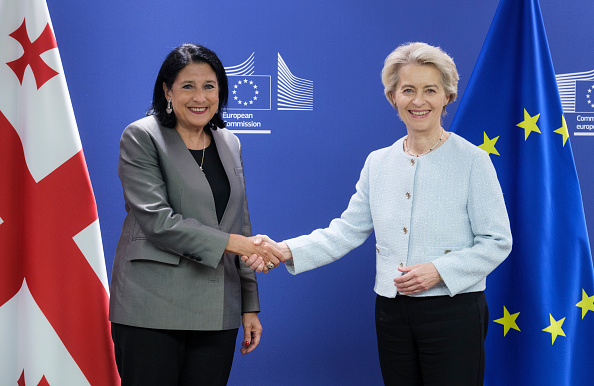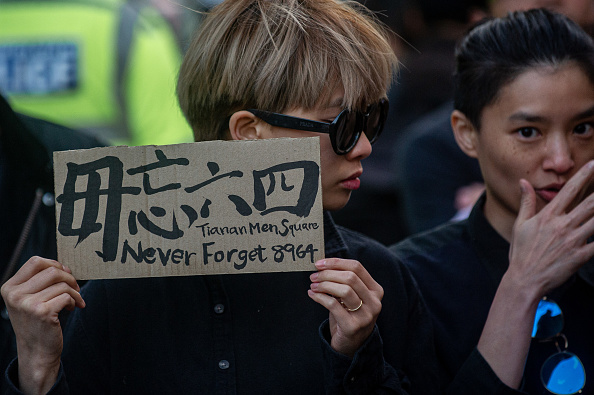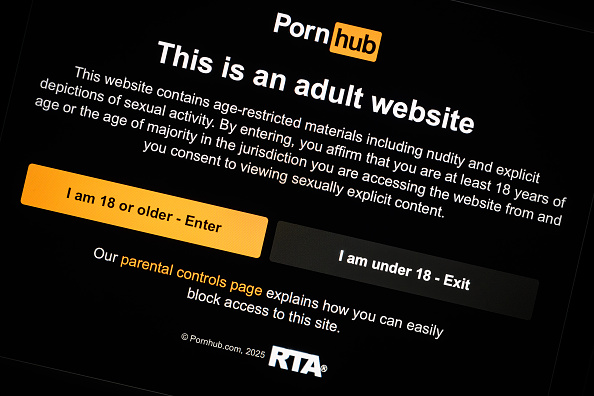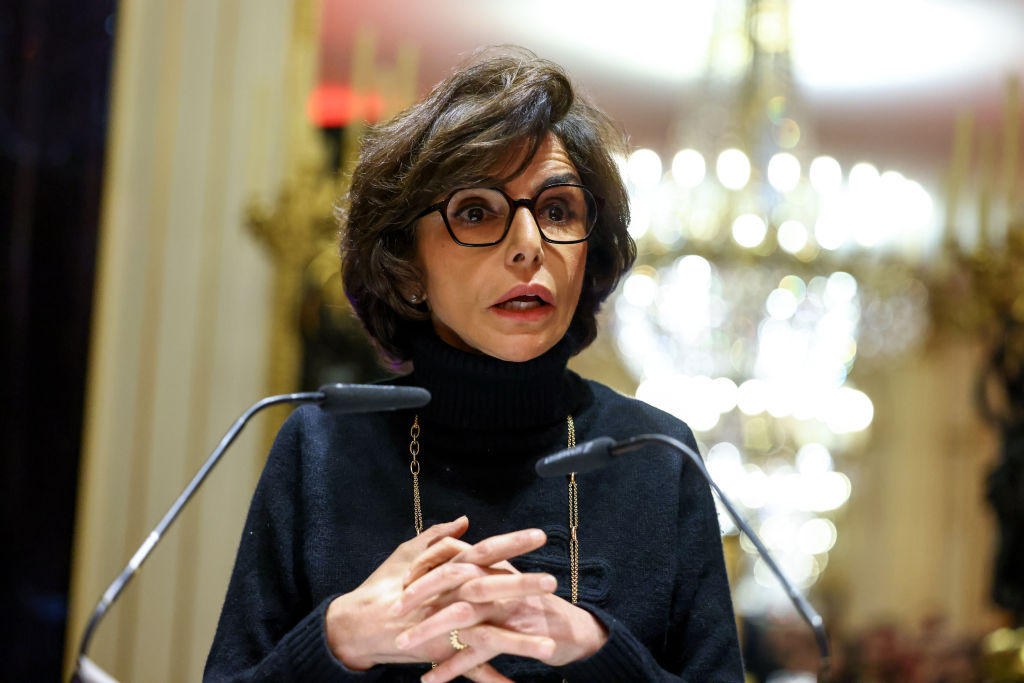As Pope Francis remained hospitalised with double pneumonia, the Vatican has started preparations for his possibly imminent funeral.
As the 88-year-old pontiff fought the illness after being admitted to Rome’s Gemelli Hospital on February 14, most early frontrunners for the more left-leaning Argentine head of the Catholic Church’s successor have emerged from the Right of the College of Cardinals.
The Swiss Guard has started holding rehearsals for the Pope’s funeral, reported Switzerland’s Blick newspaper on February 19.
Italy’s Prime Minister Giorgia Meloni visited the ailing Francis for 20 minutes the same day, where he joked about betting on his death, Italy’s Corriere della Sera reported.
“We joked around as always. He hasn’t lost his proverbial sense of humour,” Meloni said in an official statement.

With close associates of the Pope telling reporters his death may be approaching quickly, right-wing members of the College of Cardinals were prominent among the emerging frontrunners as his successor.
A popular Italian proverb holds: “Seguite sempre un papa grasso con sottile” or “Always follow a fat pope with a skinny one”.
Pope Francis has been seen as a comparatively left-wing pontiff. He campaigned for the rights of migrants in Europe, criticised the rise of right-wing populism and supported the decriminalisation of homosexuality.
In 2013, he took office, following the more right-wing Benedict XVI — who as a theologian became increasingly conservative after 1968 and as pope advocated a return to fundamental values to counter many Western countries’ increased secularisation.
Benedict XVI, in 2005, followed John Paul II, who had adopted conservative views on sexuality but was also an outspoken opponent of capital punishment and apartheid in South Africa.
Most current frontrunners, so far in keeping with this trend, have been from the Right.
This included Cardinal Péter Erdő from Hungary, President of the European Bishops’ Conference and a conservative who has been critical of gay marriage and European nations accepting refugees.

During the 2015 migrant crisis he said Hungary’s Catholic Church would not take in refugees, arguing that to do so would constitute human trafficking.
He has a good relationship with Hungarian Prime Minister Viktor Orbán, who politically has positioned his government as a last defender of Christian culture in Europe.
Orbán has also returned confiscated church properties, a move that helped Hungary’s Catholic Church almost double its number of primary schools from 2010 to 2020.
Erdő has forged strong ties with the African bishops, too, overseeing meetings of European and African bishops that alternated between the two continents.
That could mean his candidacy might draw broad support from both European cardinals and the developing world, according to the US-based National Catholic Reporter.
European and African votes alone could get Erdő across the line in a papal conclave vote. “It will take 77 votes to get to a two-thirds majority in this conclave, and the Europeans and Africans together represent 72,” the NCR noted.
One betting site, on February 20, accordingly, gave Budapest’s archbishop odds of 7/1 on. Gambling on the results of papal conclaves, coincidentally, has an illustrious 500-year history.
Archbishop of Kinshasa Cardinal Ambongo Besungu from the Democratic Republic of the Congo — who would be the first black pope if selected — could be another “papabile”, a cardinal who is a potential pope, from the Right.
The Archbishop emerged as a prominent conservative in January 2024 when he flew to Rome to deliver African bishops’ complaints after Pope Francis’ “Fiducia Supplicans”, which allowed priests to bless unmarried same-sex couples.

He has become the most prominent leader of an African bloc that now has 17 cardinals under 80 years of age – and who can therefore vote – out of the 140 electors.
A Dutch former doctor, Archbishop of Utrecht Cardinal Wim Eijk, has been a critic of Pope Francis on social issues and looked to have emerged as the most conservative of the current frontrunners.
When Pope Francis suggested exploring intercommunion between Catholics and Protestants, the Archbishop called the move “a drift towards apostasy from the Truth”, in which the pontiff rejected “the clear doctrine and practice of the Church”.
And when Francis explored the permissibility of civil remarriage for couples who had not received an annulment after a divorce, Cardinal Ejik retorted that the pontiff was promoting “a form of structured and institutionalised adultery”.

Eijk, though, appeared to have devoted less time than Erdő to building alliances with cardinals in the developing world. Europe’s votes will make up only 40 of the College of Cardinals in the next conclave, down from 52 per cent at the College’s last consistory in August 2022.
While African and other developing world cardinals will constitute important voting blocs, another significant wing will be the “Bergoglian Cardinals” – Francis’ own appointees who today make up 63 per cent of voting cardinals, just shy of the two-thirds majority needed to become pope.
Continuity cardinals could include Cardinal Luis Antonio Tagle of the Philippines, who is left-wing politically and has been dubbed “the Asian Pope Francis”.
Another could be the Vatican’s Secretary of State, Cardinal Pietro Parolin, a political centrist and career Holy See diplomat who has been a favourite with bookmakers – with one offering 4/1 odds on February 20 for him to succeed.
As a diplomat, he played a major role in re-establishing US-Cuba relations, moderating an October 2014 meeting between the two sides and visited Ukraine in July 2024.
His papacy also would likely be considered an extension of Francis’ legacy.

Other Vatican insiders cautioned the “Bergoglian” bloc may not actually exist as a cohesive group. Francis’ penchant to choose cardinals from far-flung countries meant few of them had ever met each other.
A final lesson could lie in the last conclave that elected Pope Francis in 2013.
As National Catholic Register’s Matthew Bunson wrote at the time, this conclave, which elected a left-leaning pope, was actually the product of two conservative ones, those of John Paul II and Benedict XVI.





